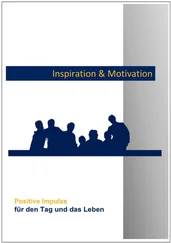Empathy avoidance may even have played an important, chilling role in the Holocaust. Rudolf Hoess, the commandant of Auschwitz, reported that he “stifled all softer emotions” in order to carry out his assignment: the systematic extermination of 2.9 million people (Hoess, 1959).
It can produce immoral action . Perhaps the most surprising implication of the empathy‐altruism hypothesis is that empathy‐induced altruism can lead to immoral action. This implication is surprising because many people equate altruism with morality. The empathy‐altruism hypothesis does not.
Often, altruism produces action judged moral – as when it leads us to help the needy or comfort the sick. But not always. Batson, Klein, Highberger, and Shaw (1995) found that empathy‐induced altruistic motivation can also lead people to give preferential treatment to a person for whom they feel empathy even though doing so violates their moral standards of fairness (also see Blader & Rothman, t2014). Egoism, altruism, and moral motivation are, it seems, three distinct forms of motivation, each of which can conflict with another (see Batson, 2011, 2018, for discussions of the distinctions).
More broadly, there is evidence that empathy‐induced altruism can lead to partiality in our decisions as a society about whom among the many in need will get our assistance. Several decades ago, Time magazine essayist Walter Isaacson (1992) commented on the photogenics of disaster. He raised the possibility that the decision to intervene in Somalia but not the Sudan occurred because those suffering in Somalia proved more photogenic – their faces evoked empathic concern and altruistic motivation in a way that those in the Sudan did not. Isaacson reflected: “Random bursts of compassion provoked by compelling pictures may be a suitable basis for Christmas charity drives, but are they the proper foundation for a foreign policy?” (Isaacson, 1992; similarly, see Bloom, 2016; Prinz, 2011).
It can undermine the common good . Not only does the empathy‐altruism hypothesis predict that empathy‐induced altruism can lead to immoral action but also that it can lead us to act against the common good in social dilemmas. A social dilemma arises when three conditions co‐occur: (a) Persons have a choice about how to allocate their scarce resources (time, money, energy, etc.). (b) Regardless what others do, to allocate the resources to the group is best for the group as a whole, but to allocate to a single individual (oneself or another group member) is best for that individual. (c) If all allocations are to separate individuals, each individual is worse off than if all allocations are to the group. In modern society, social dilemmas abound. They include recycling, carpooling, pollution reduction, voting, paying taxes, contributing to public TV – to name but a few.
Guided by the assumption of universal egoism that underlies game theory, it has been taken for granted that in a social dilemma the only individual to whom we will allocate scarce resources is ourselves. But the empathy‐altruism hypothesis predicts that if you feel empathic concern for another member of the group, you will be altruistically motivated to benefit that person. So, if you can allocate resources to them, then rather than the two motives traditionally assumed to conflict in a social dilemma – self‐interest and the common good – three motives are in play. And if, along with egoism (self‐interest), the altruistic motive is stronger than the desire to promote the common good, the latter will suffer.
How often does empathy‐induced altruistic motivation arise in real‐world social dilemmas? It’s hard to think of a case where it doesn’t. It arises every time we try to decide whether to spend our time or money to benefit ourselves, the community, or another individual about whom we especially care. I may decline to participate in a neighborhood clean‐up project on Saturday not because I want to play golf but because my son wants me to take him to a movie. Whalers may kill to extinction – and loggers clear‐cut – not out of personal greed but to provide for their families.
Consistent with this empathy‐altruism prediction, Batson, Batson, et al. (1995) found that research participants placed in a social dilemma allocated some of their resources to a person for whom they felt empathy, reducing the overall collective good. And Oceja et al. (2014) found that if there is reason to believe that one or more other individuals in the group have needs similar to the need that induced empathy, resources may be preferentially allocated to them as well.
Highlighting a situation in which empathy‐induced altruism poses an even greater threat to the common good than does self‐interested egoism, Batson et al. (1999) found that when allocation decisions were to be made public, empathy‐induced altruism reduced the common good whereas self‐interest did not. Why would this be? There are clear social norms and sanctions against pursuit of self‐interest at the expense of what’s best for all: “Selfish” and “greedy” are stinging epithets (Kerr, 1995). Norms and sanctions against showing concern for another person’s interests – even if doing so diminishes the common good – are far less clear. How do whalers and loggers stand up to the public outcry about over‐depletion of natural resources? It’s easy. They aren’t using these resources for themselves but to care for their families.
If altruism poses such a threat to the common good, why don’t we have societal sanctions against altruism like those against egoism? Perhaps it’s because society makes one or both of two assumptions: (a) altruism is always good and (b) altruism is weak (if it exists at all). We now have good reason to think that each of these assumptions is wrong.
Research over the past four decades designed to test the empathy‐altruism hypothesis and its implications suggests not only that this hypothesis is true but also that empathy‐induced altruism can be a powerful positive force in human affairs. It offers benefits in the form of more and more sensitive help for those in need, less aggression, increased cooperation in competitive situations, reduction of intergroup conflict, and improved attitudes toward and action on behalf of stigmatized groups. It may also provide health benefits to the altruistic helper.
Yet empathy‐induced altruism is not always a force for good. To use its power wisely, we need to be aware not only of its potential benefits but also its liabilities. It can, at times, bring harm to the altruistically motivated individual and to those in need. It can produce paternalism. It is more suited to addressing personal than global needs. It can arouse motivation to avoid feeling empathic concern when people know that to act on the resulting altruistic motivation will be either costly or ineffective. It can produce immoral action by leading us to show partiality toward those for whom we care, despite our moral standards dictating impartiality. And it can lead us to act against the common good in social dilemmas. Indeed, when our action is public, empathy‐induced altruism can pose a more serious threat to the common good than does self‐interested egoism.
These liabilities need to be taken into account in any attempt to promote human welfare by building on the empathy‐altruism research. Although we now have clear evidence that empathy‐induced altruistic motivation exists and can be pervasive and powerful, we also have clear evidence that unless handled with sensitivity to its limitations as well as its promise, it can harm not help.
If this conclusion is correct, how does the research on empathy‐induced altruism relate to positive psychology? Abraham Maslow, who is credited with first advocating positive psychology (in his Motivation and Personality , 1954), felt the discipline of psychology had made far more progress understanding our human shortcomings – our pathologies and weaknesses – than our strengths and potentialities. Without denying the importance of understanding and addressing pathology and weakness, Maslow sought to expand the scope of psychological theory and research to include the positive aspects of our nature. The empathy‐altruism hypothesis and related research also calls for an expansion of psychology. It calls for expansion of our understanding of human motivation to include more than self‐interested egoism. So, the empathy‐altruism research may seem a paradigm example of positive psychology – especially given that many people consider altruism a quintessentially positive attribute.
Читать дальше












